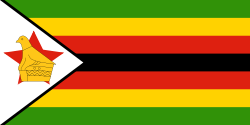Unitary state
From Wikipedia, the free encyclopedia

A map showing the unitary states of the world (in blue).
| Part of the Politics series |
| Basic forms of government |
|---|
| Power structure |
| Power source |
| Politics portal |
A unitary state is a state governed as one single unit in which the central government is supreme and any administrative divisions (subnational units) exercise only powers that their central government chooses to delegate. The great majority of states in the world have a unitary system of government.
Unitary states are contrasted with federal states (federations) and confederal states (confederation):
- In a unitary state, subnational units are created and abolished and their powers may be broadened and narrowed, by the central government. Although political power in unitary states may be delegated through devolution to local government by statute, the central government remains supreme; it may abrogate the acts of devolved governments or curtail their powers.
- The United Kingdom is an example of a unitary state. Scotland, Wales, and Northern Ireland which, along with England are the four constituent countries of the United Kingdom, have a degree of autonomous devolved power – the Scottish Government and Scottish Parliament in Scotland, the Welsh Government and National Assembly for Wales in Wales, and the Northern Ireland Executive and Northern Ireland Assembly in Northern Ireland. But such devolved power is only delegated by Britain's central government, more specifically by the Parliament of the United Kingdom, which is supreme under the doctrine of parliamentary supremacy. Further, the devolved governments cannot challenge the constitutionality of acts of Parliament, and the powers of the devolved governments can be revoked or reduced by the central government (the Parliament with a government comprising the Cabinet, headed by the Prime Minister). For example, the Northern Ireland Assembly has been suspended four times, with its powers reverting to the central government's Northern Ireland Office.
- Ukraine is another example of a unitary state (see Constitution of Ukraine). The Republic of Crimea within the country has a degree of autonomy and is governed by its Cabinet of Ministers and legislative Council. In the early 1990s the republic also had a presidential post which was terminated due to separatist tendencies that intended to transfer Crimea to Russia.
- In federal states, by contrast, states or other subnational units share sovereignty with the central government, and the states constituting the federation have an existence and power functions that cannot be unilaterally changed by the central government. In some cases, it is the federal government that has only those powers expressly delegated to it.
- The United States is an example of a federal state. Under the U.S. Constitution, power is shared between the Federal government of the United States and the U.S. states, with the tenth amendment explicitly denoted as "The powers not delegated to the United States by the Constitution, nor prohibited by it to the States, are reserved to the States respectively, or to the people." Many federal states also have unitary lower levels of government; while the United States is federal, the states themselves are unitary under Dillon's Rule – counties and municipalities have only the authority granted to them by the state governments under their state constitution or by legislative acts. For example, in the U.S. State of Connecticut, county government was abolished in 1960.
Devolution (like federation) may be symmetrical, with all subnational units having the same powers and status, or asymmetric, with regions varying in their powers and status.
List of unitary states
Unitary republic
-
 Afghanistan
Afghanistan -
 Albania
Albania -
 Algeria
Algeria -
 Angola
Angola -
 Armenia
Armenia -
 Azerbaijan
Azerbaijan -
 Bangladesh
Bangladesh -
 Belarus
Belarus -
 Benin
Benin -
 Bolivia
Bolivia -
 Botswana
Botswana -
 Bulgaria
Bulgaria -
 Burkina Faso
Burkina Faso -
 Burundi
Burundi -
 Cameroon
Cameroon -
 Cape Verde
Cape Verde -
 Central African Republic
Central African Republic -
 Chad
Chad -
 Chile
Chile -
 People's Republic of China
People's Republic of China -
 Colombia
Colombia -
 Republic of the Congo
Republic of the Congo -
 Costa Rica
Costa Rica -
 Croatia
Croatia -
 Cuba
Cuba -
 Cyprus
Cyprus -
 Czech Republic
Czech Republic -
 Djibouti
Djibouti -
 Dominica
Dominica -
 Dominican Republic
Dominican Republic -
 Democratic Republic of the Congo
Democratic Republic of the Congo -
 East Timor
East Timor -
 Ecuador
Ecuador -
 Egypt
Egypt -
 El Salvador
El Salvador -
 Equatorial Guinea
Equatorial Guinea -
 Eritrea
Eritrea -
 Estonia
Estonia -
 Fiji
Fiji -
 Finland
Finland -
 France
France -
 Gabon
Gabon -
 The Gambia
The Gambia -
 Georgia
Georgia -
 Ghana
Ghana -
 Greece
Greece -
 Guatemala
Guatemala -
 Guinea
Guinea -
 Guinea-Bissau
Guinea-Bissau -
 Guyana
Guyana -
 Haiti
Haiti -
 Honduras
Honduras -
 Hungary
Hungary -
 Iceland
Iceland -
 Indonesia
Indonesia -
 Iran
Iran -
 Ireland
Ireland -
 Israel
Israel -
 Italy
Italy -
 Ivory Coast
Ivory Coast -
 Kazakhstan
Kazakhstan -
 Kenya
Kenya -
 Kiribati
Kiribati -
 Kyrgyzstan
Kyrgyzstan -
 Laos
Laos -
 Latvia
Latvia -
 Lebanon
Lebanon -
 Lesotho
Lesotho -
 Liberia
Liberia -
 Libya
Libya -
 Lithuania
Lithuania -
 Macedonia
Macedonia -
 Madagascar
Madagascar -
 Malawi
Malawi -
 Maldives
Maldives -
 Mali
Mali -
 Malta
Malta -
 Marshall Islands
Marshall Islands -
 Mauritania
Mauritania -
 Mauritius
Mauritius -
 Moldova
Moldova -
 Mongolia
Mongolia -
 Montenegro
Montenegro -
 Mozambique
Mozambique -
 Myanmar
Myanmar -
 Namibia
Namibia -
 Nauru
Nauru -
 Nicaragua
Nicaragua -
 Niger
Niger -
 North Korea
North Korea -
 Palau
Palau -
 Panama
Panama -
 Paraguay
Paraguay -
 Peru
Peru -
 Philippines
Philippines -
 Poland
Poland -
 Portugal
Portugal -
 Romania
Romania -
 Rwanda
Rwanda -
 Samoa
Samoa -
 San Marino
San Marino -
 São Tomé and Príncipe
São Tomé and Príncipe -
 Senegal
Senegal -
 Serbia
Serbia -
 Seychelles
Seychelles -
 Sierra Leone
Sierra Leone -
 Singapore
Singapore -
 Slovakia
Slovakia -
 Slovenia
Slovenia -
 South Korea
South Korea -
 Sri Lanka
Sri Lanka -
 Suriname
Suriname -
 Syria
Syria -
 Taiwan (Republic of China)
Taiwan (Republic of China) -
 Tajikistan
Tajikistan -
 Tanzania
Tanzania -
 Togo
Togo -
 Trinidad and Tobago
Trinidad and Tobago -
 Tunisia
Tunisia -
 Turkey
Turkey -
 Turkmenistan
Turkmenistan -
 Uganda
Uganda -
 Ukraine
Ukraine -
 Uruguay
Uruguay -
 Uzbekistan
Uzbekistan -
 Vanuatu
Vanuatu -
 Vietnam
Vietnam -
 Yemen
Yemen -
 Zambia
Zambia -
 Zimbabwe
Zimbabwe
Unitary monarchy
-
 Andorra
Andorra -
 Antigua and Barbuda
Antigua and Barbuda -
 Aruba
Aruba -
 Barbados
Barbados -
 Belize
Belize -
 Bhutan
Bhutan -
 Brunei
Brunei -
 Cambodia
Cambodia -
 Curaçao
Curaçao -
 Denmark
Denmark -
 Grenada
Grenada -
 Jamaica
Jamaica -
 Japan
Japan -
 Jordan
Jordan -
 Kuwait
Kuwait -
 Liechtenstein
Liechtenstein -
 Luxembourg
Luxembourg -
 Monaco
Monaco -
 Morocco
Morocco -
 Netherlands
Netherlands -
 New Zealand
New Zealand -
 Norway
Norway -
 Oman
Oman -
 Papua New Guinea
Papua New Guinea -
 Qatar
Qatar -
 Saint Lucia
Saint Lucia -
 Saint Vincent and the Grenadines
Saint Vincent and the Grenadines -
 Saudi Arabia
Saudi Arabia -
 Sint Maarten
Sint Maarten -
 Solomon Islands
Solomon Islands -
 Spain
Spain -
 Swaziland
Swaziland -
 Sweden
Sweden -
 Thailand
Thailand -
 Tonga
Tonga -
 Tuvalu
Tuvalu -
 United Kingdom
United Kingdom -
 Vatican City
Vatican City
See also
- Centralized government
- Constitutional economics
- Political economy
- Regional state
- Rule according to higher law
- Unitary authority
References
This article is issued from Wikipedia. The text is available under the Creative Commons Attribution/Share Alike; additional terms may apply for the media files.